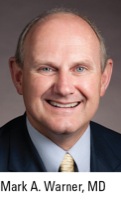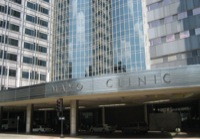I agree with everything you posted. Its great..
and at the end of reading it, i concluded. the job market is tight as hell. There are very very few jobs posted in metro areas, even at academic centers.
You shouldnt have to spend that much time and effort to get a job.... It should be you read gaswork and a few publications and send your resume out. If you have to start doing gymnastics here and there to get a job.. it just tells me something... there are too many anesthesiologists or not enough jobs or both. and i dont see the situtation improving taking into account the increase in supervision jobs there will be in the future. Even today ANeshesiolgist news is forecasting that our futures are going to change in a big way. I think the guy who wrote that is from mayo clinic. So in a nutshell.. our future is very uncertain.. The only good point is that in a few years a lot of old anesthesiologist will be leaving the market.. Anesthesiology is not a good place to be right around now.
You mean this article?
For Anesthesiologists, Defining Value May Be Key to Future
by Adam Marcus
This year, physicians at Mayo Clinic, in Rochester, Minn., will perform roughly 5,000 bone biopsies on patients with cancer or who are suspected of having the disease.
The clinicians tasked with shepherding these patients through the institution will not be hematologists, however. Anesthesiologists will perform the intake procedures. They will start the physical examination and ensure the patients have appropriate anesthetic for the biopsy procedure. Although the purpose of the procedure is to detect cancer, the consultation with a hematologist will come at the end of the process.
That model might sound unorthodox, but Bradly J. Narr, MD, chair of anesthesiology at Mayo Clinic, believes its a glimpse of the future for his specialty. The rationale for the arrangement is rooted in Dr. Narrs conviction that anesthesiologists can do more in hospitals and clinics than merely put patients to sleep and wake them up.
Brad and I often say, We want everyone to turn a corner anywhere in any Mayo building and bump into an anesthesiologist, said Mark A. Warner, MD, a Mayo anesthesiologist and president of the American Society of Anesthesiologists (ASA).
The specialty is extraordinarily well trained to lead or coordinate care during all phases of the perioperative period, from the moment a surgeon and patient agree on a procedure to the time of discharge, Dr. Warner said. Our Mayo anesthesiologists are increasingly playing lead roles in each of these periods.
Mayo anesthesiologists have spearheaded a systemwide effort to reduce blood transfusions through a continuous oversight program for the operating room, Dr. Warner said.
Mark H. Ereth, MD, MA, professor of anesthesiology at Mayo, heads the institutions Comprehensive Blood Management Program. The system seeks to modify transfusion behavior, ensuring a significant reduction in unnecessary transfusion, Dr. Ereth said. We utilize a combination of sophisticated data collection and analysis, laboratory-guided transfusion algorithms and broad-based educational efforts.
First applied to cardiac surgery, the program reduced the number of transfused blood products by half, while reducing infection risks and the incidence of renal dysfunction, Dr. Ereth said. This resulted in millions of dollars in savings to the institution in the first year, while improving care.
Every dollar Mayo invests in the program saves it more than $10 in transfusion-related expenses, added Dr. Ereth, who said the system is now being rolled out to other clinical areas.
Mayo and the Cleveland Clinic will be hosting a continuing medical education conference, Transformative Fusion (TransFuse 2011) of Innovative Blood Management Technology, in April, on the topic of blood management. We will be launching an iPad app for blood management and this promises to be an incredibly innovative meeting, Dr. Ereth said.
Mayo anesthesiologists also are in charge of identifying patients at high risk for developing complications related to obstructive sleep apnea. We believe that the cost savings associated with reduced complications far exceeds the costs of having anesthesiologists involved in this process, Dr. Warner said.
Anesthesiologists perform a specialized functionand they get paid accordingly. Last year, the typical anesthesiologist could expect to earn more than $330,000, according to Merritt Hawkins, a health care recruiter and consultancy.
But the high earnings might not last long. Forces from several sidesbudget pressures in hospitals, state laws proposing the substitution of nurses for physician-delivered anesthesia, general attempts at cost savings in health care, to name a just fewcould take a toll on salaries or at least curb their growth.
Meanwhile, efforts by the government to push quality improvement initiatives will increasingly affect anesthesiologists. The Centers for Medicare & Medicaid Services continues to expand its roster of reasons to discount reimbursement to hospitals. The list now includes 46 measures, with two new itemsperioperative temperature control and timely removal of urinary catheterslanding squarely in the province of anesthesiology.
To be sure, the quality movement is far from a solely external force. The speciality itself is pushing greater attention to performance and outcomes. The Anesthesia Quality Institute, an offshoot of the ASA but a separate entity, is developing clinical benchmarks based on practice data. And the American Board of Anesthesiology now requires assessment of performance by anesthesiologists who are enrolled in the Maintenance of Certification in Anesthesiology (also known as MOCA).
How, then, can anesthesiologists demonstrate to hospital administrators, lawmakers and, perhaps most important, the taxpaying public (patients) that theyre worth the money?
If were looked at as a cost center, well be at the bottom of the barrel. We have to demonstrate our efficiencies, said Jacques Chelly, MD, PhD, MBA, professor and Director of the Division of Acute Interventional Perioperative Pain and Regional Anesthesia at the University of Pittsburgh School of Medicine.
One way to prove worth in the hospital is to be indispensable, Dr. Chelly said. That means wearing as many hats as will fit. If we say no too often, we will not be the people the hospital cannot do without, he said. At the end of the day, we pay for that. We have to get involved at every level.
Peter Walker, MD, senior partner at North American Partners in Anesthesia (NAPA), a large group practice operating in five states, said the specialty has changed permanently.
I think that clearly, anesthesia is the middle of the economic engine of the hospital, Dr. Walker said. Hospitals increasingly rely on surgical procedures and other interventions for their profits, Dr. Walker said.
Years ago, those procedures almost always took place in the operating room (OR). Now, an ever-larger number are occurring outside the OR, in catheterization labs, high-end bronchopulmonary suites, endoscopy units and elsewhere.
Anesthesia needs to take ownership of the episode of procedure care, from preprocedure evaluation to the postanesthesia care unit and beyond, Dr. Walker said. Whether a hospital has 750 beds or 75, the theme is the same: Hospitals need people who can facilitate.
For anesthesiologists, that means taking steps to avoid fragmentation of care, duplication of both processes and procedures and miscommunication. Preventing cancellations is another key function. Its a big loss to everybody, from the patient to the hospital administration.
Like it or not, Dr. Walker said, that shift has profound implications for anesthesia providers. The anesthesiologist who wants to hide out in room 3 and work from 8 a.m. to 5 p.m. isnt going to be able to be doing that much longer, he said. The world expects more of that person.
Indeed, large groups like NAPA, which consists of more than 400 anesthesiologists and half as many certified registered nurse anesthetists, dont just tolerate clinicians who take on responsibilities beyond the conventional, they encourage them. We reward people for working outside of the operating room, Dr. Walker said. Our leaders become leaders beyond the realm of anesthesia. They get to know the fabric of the institution.
Two NAPA anesthesiologists have served as presidents of their hospitals medical staffs; several more are division chiefs who hold seats on their institutions quality committees. Dr. Walker has done two stints as medical director for North Shore University Hospital, in Great Neck, N.Y., where he helped found NAPA more than 25 years ago.
What about the scrubs-to-ski slope lifestyle featured in recruiting advertisements at meetings and speciality journals? Although it will still be possible for physicians to juggle work and life for maximal reward, being part of a team will be the best way to achieve the best balance, Dr. Walker said. You have to be part of a team, and you have to be part of a team that reverences the need for time off, he said.
Dr. Narr admitted that Mayos experience might not translate well to smaller institutions. We have an economy of scale that allows clinicians to extend themselves without snapping. I can have 15 critical care anesthesiologists cover three intensive care units. You need to get the group big enough.
Not everything requires scale, however. As Dr. Chelly noted, an anesthesia department that wrings efficiencies out of its daily operations will earn the gratitude of hospital administrators. Dr. Chelly and his colleagues were able to slash their yearly drug budget by $1 million by switching to cheaper local anesthetics.
Dr. Warner agreed. The reduction of one postoperative pneumonia because an anesthesiologist intervened, provided the right antibiotics at the right time, implemented postoperative positioning orders to raise the head of a ventilated patient or started another intervention results in a savings of approximately $27,000, he said. If anesthesiologists efforts reduce length of stays, number of transfusions and the complications that accompany them, and improve patient satisfaction and safety, it is logical that medical center and facility administrators will find value in this extension of anesthesia practice.
Or, as Dr. Narr put it, Eliminating outliers has a huge impact on the bottom line.



